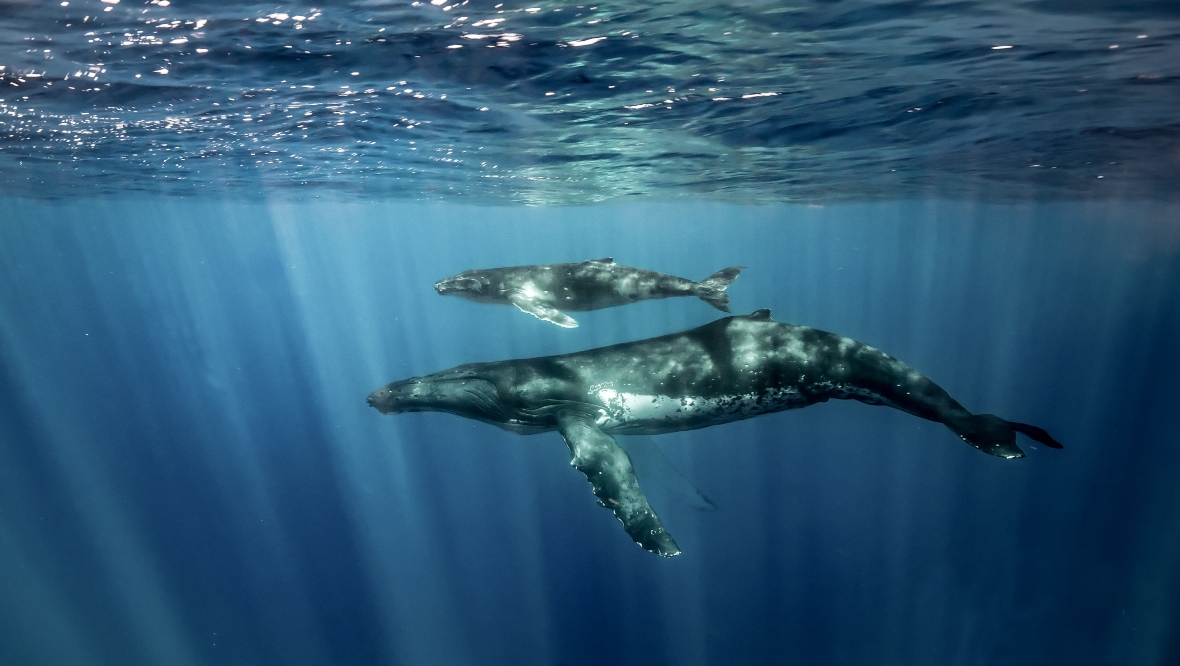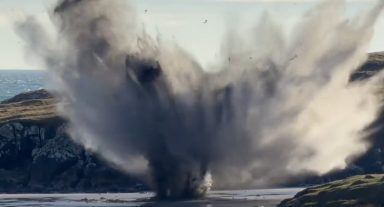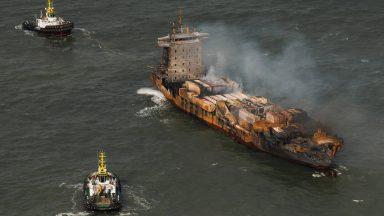Whale and dolphin strandings on Scottish coasts have increased “exponentially” in the last 30 years and particularly in the last decade, new research has shown.
Between 1992 to 2022, 5,147 whales, dolphins or porpoises died on Scottish shores.
In that time, whale and dolphin strandings rose by 125%, according to the research by the University of Glasgow’s Scottish marine animal stranding scheme (SMASS).
Baleen whale strandings increased by 248%, and common dolphin strandings soared by 812%.
Around 300 of the marine animals are becoming stranded on Scotland’s beaches every year.
Stranding occurs when they become stuck in shallow water or on the shoreline, often resulting in serious injury or death.
The paper published by SMASS on Wednesday indicates that strandings like these are becoming more and more frequent.
Researchers suggested multiple possible reasons for the increases, but concluded that human noise and activity are part of several key factors.
“Human activities are steadily intensifying within ocean ecosystems, likely impacting wildlife populations,” the report said.
“Noise pollution is a critical stressor for marine mammals, especially for deep-diving species.”
In Scotland, researchers said sources of human-made noise are abundant, including seismic survey air guns and drilling from industrial construction.
“Both of which are expected to increase due to offshore wind farm projects aimed at achieving 2050 energy targets,” the report added.
“Monitoring [marine mammal] populations prior to, during, and post development is imperative to understand the impacts of these industrial activities.”
As surface feeders, SMASS said entanglement also remains a significant threat for baleen whales.
Researchers said increased fishing activity off Scottish shores has grown in parallel with growing whale populations as they recover from the impacts of historic whaling.
The paper suggests that juvenile dolphins and whales are particularly susceptible to entanglement.
The paper said stranding rates may be driven by changes in population abundance and distribution, causing a proportional rise in strandings.
Researchers suggested that dolphins and whales may also be shifting closer to Scottish waters as they follow food and prey, which they said is likely in response to climate change.
“Growing [human] activity is exerting continuously increasing pressure on the environment, causing significant detrimental effects on wildlife populations,” the paper said.
“In the marine environment, predominant threats include declining fish stocks, increased bycatch and entanglement rates, habitat change from warming sea temperatures, and cascading impacts from chemical, plastic, and noise pollution.
“Marine mammals are also particularly vulnerable to [human-made] pressures, with many cetacean species experiencing habitat shifts, deteriorations in health, reduced reproductive capacity, and ultimately, population declines.
The 30-year report concluded that stranded whales and dolphins act as “sentinels” of ocean health, and offer critical insight into how human activity is affecting the marine environment.
Follow STV News on WhatsApp
Scan the QR code on your mobile device for all the latest news from around the country




























